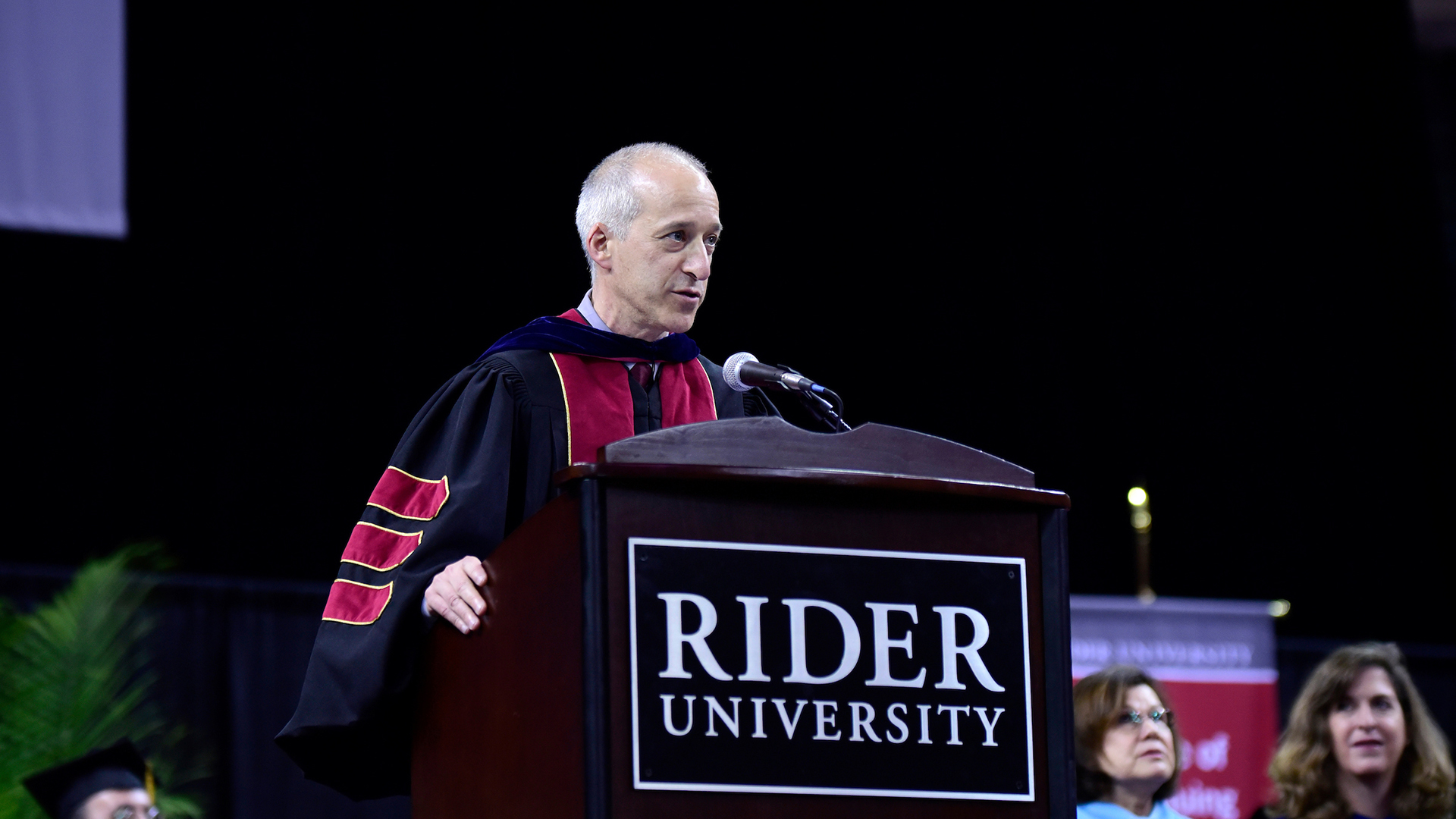Friday, Nov 17, 2017
Jonathan Millen provides insight on key initiatives
by Adam Grybowski
As Rider University begins to work toward the visionary growth outlined its new strategic plan, the College of Liberal Arts and Sciences has been actively supporting those broader initiatives while advancing its own key priorities. For the first time in 20 years, the College comprehensively revised its general education curriculum. It is also looking forward to expanding its faculty in the near future.
Dean Jonathan Millen recently took the time to discuss these issues and more.
This semester, Rider began implementing its new Engaged Learning Program. How do you describe the program to new students and those who may be unfamiliar with the concept?
Engaged Learning is not new to the College of Liberal Arts and Sciences. Through such high impact opportunities as study abroad, research with faculty and internships, our students have been involved in engaged learning for decades. Essentially, engaged learning involves connecting the curriculum from the classroom to real-world experiences. What makes the new program unique is the requirement that students earn six engaged learning points prior to graduation.
How will it benefit students?
The Engaged Learning Program promotes a mindful approach to a holistic education. Students are encouraged to explore opportunities from six different categories: Internship and Professional Experiences, Leadership Development, Student-Faculty Collaboration, Global and Cultural Experiences, Service Learning, and The Arts. By compiling a rich and varied involvement record, students will be positioning themselves strategically for opportunities after graduation. They also are ensuring that they get the most out of their time on campus.
Why did the College recently revamp its general education curriculum?
Our general education curriculum had not been through a comprehensive revision in over 20 years. It is critical that our courses are aligned with both the liberal arts tradition and expectations of today’s employers. Our curriculum has done that by establishing a balance between a foundation of disciplinary perspectives with a set of essential and transferable core competencies.
What are some of the major changes and how does the curriculum differ significantly from the previous model?
Perhaps the most significant change is the dual focus on depth and breadth of study. Whereas the old curriculum was largely made up of 100- and 200-level courses, the new model has a “vertical” component that will include upper-level courses. Also, the new curriculum requires students to explore a second area of inquiry beyond the major. This is intended to encourage students to declare minors and second majors.
As the College will be welcoming a number of new members to its faculty next year, what are the most important qualities you look for in new professors?
First and foremost, we look for faculty who are passionate about bringing their disciplinary research into the classroom. Students who choose Rider often do so because of the promise of meaningful interaction with their professors. Our goal is to recruit faculty who value a personalized approach to student learning, in and out of the classroom. In this way, and to bring this full-circle, we seek faculty members who will model engaged learning for their students.

